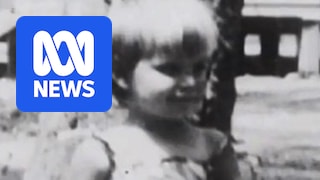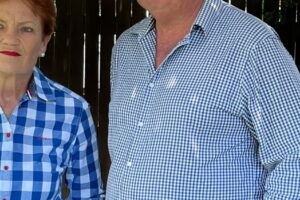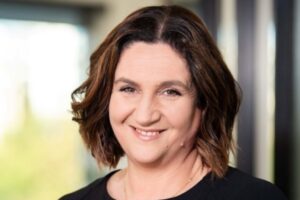
When New South Wales MP Jeremy Buckingham stood in parliament to name the man who once confessed to killing three-year-old Cheryl Grimmer, he was exercising one of the few powers that can pierce half a century of legal silence: parliamentary privilege.
The privilege allowed him to read aloud a 1971 confession that courts ruled inadmissible and police could not rely on, despite its apparent detail.
The man was 17 when he told detectives he killed Cheryl, who vanished from Fairy Meadow Beach in Wollongong in 1970.
The confession had been shelved for decades.
Mr Buckingham says privilege was the only way to bring the full story to light.
“I and the Grimmers believe a known murderer is free in the community,” Mr Buckingham said at a media conference after he spoke in parliament.
“Today is about putting Cheryl, the Grimmers, justice and community safety first.”
Upper House MP Jeremy Buckingham became emotional as he read the long-suppressed confession in parliament, revealing alleged details of Cheryl Grimmer’s abduction and murder. (Supplied: NSW Parliament)
Using parliamentary privilege
Under parliamentary privilege, members are protected from legal consequences that would otherwise arise from breaching court orders, suppression orders, or laws — such as the Children (Criminal Proceedings) Act 1987, which prohibits publishing the name of anyone involved in criminal proceedings who was a child at the time of the offence.
Because the man was 17 when he confessed and the charges were laid in 2017, his identity remains legally suppressed outside parliament.
The media don’t have the same protection as members and would risk prosecution, fines, or imprisonment under the act if they published his name.
In parliament, Mr Buckingham outlined the background to the case and how the confession had been recorded at the Metropolitan Children’s Shelter in Sydney on April 29, 1971.
There was no support person present, as there were no rules requiring one at the time.
The confession included detailed descriptions of the suspect, and a graphically precise account of how he abducted Cheryl from the change rooms, then hid in the sand hills, scrub and a nearby creek before carrying her to where he ultimately left her body in bushland.
People search an area near Fairy Meadow Beach, in Wollongong, following Cheryl’s disappearance in 1970. (ABC News)
A crucial detail
A particularly striking detail from the man, referred to in reporting by the pseudonym Mercury, came when he described Cheryl Grimmer leaving the change room.
“Yes,” he said, “she had a drink from the water fountain, someone lifted her up, or I think.”
That moment, seemingly small, was crucial.
Decades later, former detective Frank Sanvitale told the BBC podcast Fairy Meadow, by reporter Jon Kay, that this specific recollection was what convinced him Mercury was the man who had killed Cheryl.
Mr Sanvitale was the first police officer to interview Cheryl’s older brother, Ricki Nash, who vividly recalled lifting his little sister for a drink at the bubbler while they were outside the change rooms.
The confession also described binding her hands and covering her with leaves and even detailed the destruction of her swimsuit.
Despite this level of detail, the record was deemed inadmissible during a Supreme Court hearing in 2019.
The Crown had acknowledged it could not proceed with its case without the document, but Justice Robert Allan Hulme ruled against its use, leaving the confession sealed away for decades and Cheryl’s case unresolved.
Last week, Mr Buckingham also secured support for a parliamentary inquiry into missing persons, including the Grimmer case.
He said that the inquiry would allow further evidence, and potentially additional names, to be disclosed under privilege.
Family’s hope
Speaking to reporters after the name was revealed, Linda Grimmer, the wife of Cheryl’s brother, Paul, said they were not seeking to “harm Mercury or his family”.
“He has been given the opportunity to declare his innocence or guilt, yet he has chosen to remain silent,” she said.
“Once Mercury’s confession is made public, we believe people will understand why we felt we had no choice but to accept Jeremy Buckingham’s offer of support.
“What we want now is the truth.
“We hope that by speaking out today, members of the public who may hold information will come forward so that Mercury can be questioned in a court of law and justice for Cheryl can finally be served.”
The NSW government has increased the reward to $1 million for information about the abduction and suspected murder of Cheryl Grimmer.
Police say the case remains open and there is $1 million reward for any information that leads to a successful conviction.





